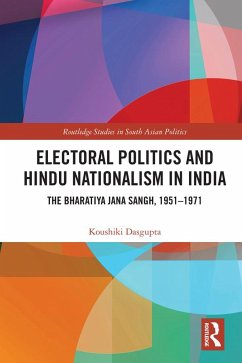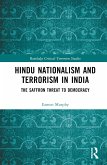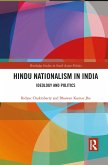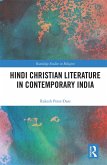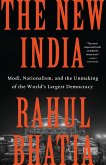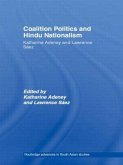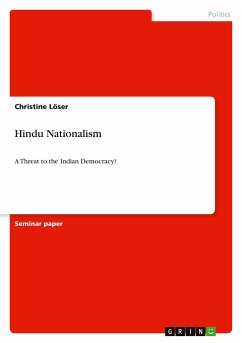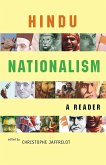This book analyses the rise and growth of the Hindu nationalist party Bharatiya Jana Sangh in post independent India, tracking the electoral journey of the party from 1951 to 1971. Offering a comprehensive analysis of the party Bharatiya Jana Sangh - its origin, ideas and electoral performances in the first two decades of its journey - the book provides an overview of the state-wise electoral record of the party mobilizing Hindu support and managing factional disputes. It surveys the issues of conflicts between the intraparty factions dominated by the recruits from the Rastriya Swayamseyak Sangh and the others. The author also presents a critique of the Hindutva politics of the Bharatiya Jana Sangh on account of its somewhat imperfect appeal among the masses and its problems in raising real issues of socio-economic concern. With a special emphasis on the states situated outside the Hindi language belt of Northern India, the electoral outcome of the Jana Sangh during each national and state legislative elections are analysed. Based on the dialectics of ideology and exigency, this book makes a thorough investigation of the leadership-succession crises in the party, patterns of vote sharing at the regional level and trends of coalition with the non-Congress parties in the states.¿ Providing a nuanced understanding of the processes leading to the strengthening of right-wing political parties in India, the book will be of interest to academics working in the fields of nationalism, party politics and South Asian Politics.
Hinweis: Dieser Artikel kann nur an eine deutsche Lieferadresse ausgeliefert werden.
Hinweis: Dieser Artikel kann nur an eine deutsche Lieferadresse ausgeliefert werden.

